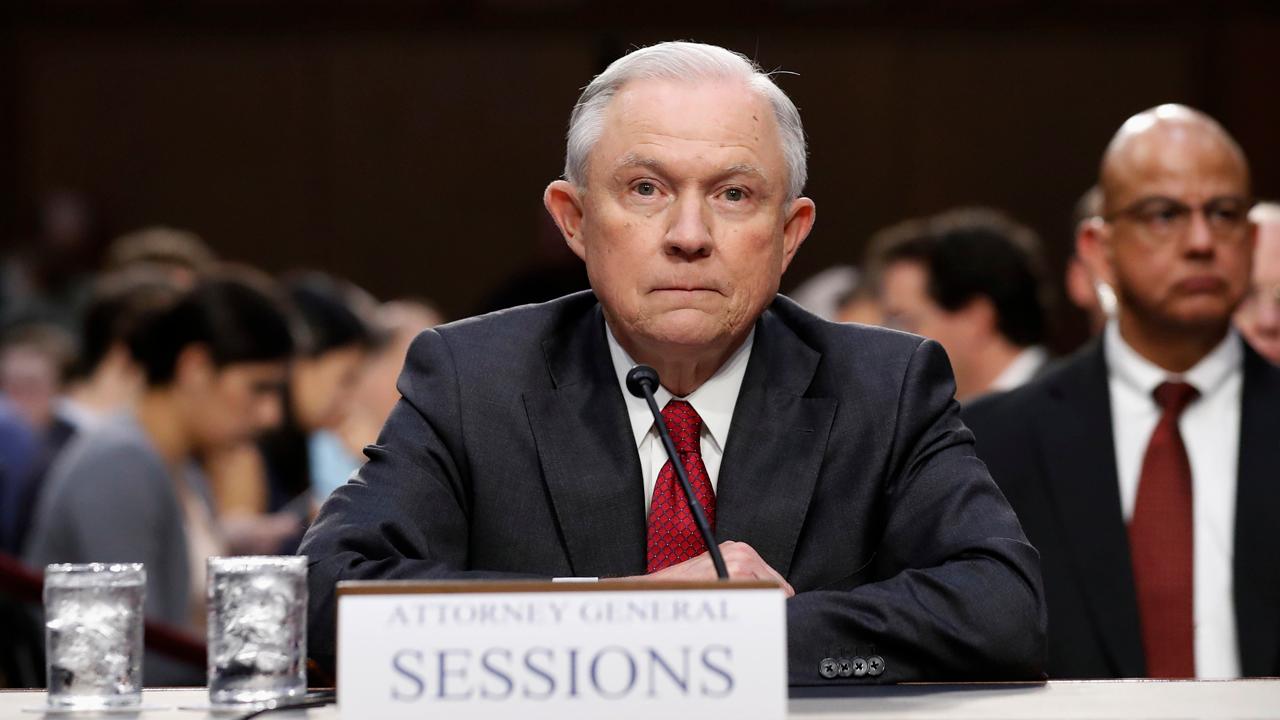Judge Andrew Napolitano explains DOJ's legal battle with sanctuary cities
Fox News senior judicial analyst Judge Andrew Napolitano on Wednesday discussed the legality of when state or local governments have the ability to refuse helping the federal immigration officials.
“What the president is attempting to do is to talk local authorities into cooperating with ICE,” he told FOX Business’ Neil Cavuto on “Cavuto: Coast to Coast.”
The Justice Department on Wednesday sent letters to 23 sanctuary cities threatening to subpoena them if they refuse to hand over documents showing their compliance with the federal government over immigration policy.
Napolitano explained that under the law, the federal government cannot compel local police to help them enforce federal law, however, local authorities can’t stop or interfere with federal enforcement or else they may be the ones in legal jeopardy.
“They can’t stop or interfere with federal enforcement, but they cannot be commandeered, which is the Supreme Court’s expression for taking away from their other jobs and put in the service of the feds, can’t do it,” he said.
The letter sparked outrage among some of the cities’ mayors, including New York City Mayor Bill de Blasio, who blasted the DOJ over Twitter.
“I will NOT be attending today’s meeting at the White House after @realDonaldTrump’s Department of Justice decided to renew their racist assault on our immigration communities. It doesn’t make us safer and it violates America’s core values,” de Blasio said.
Attorney General Jeff Sessions, who is an outspoken critic of sanctuary cities, last year threatened to withhold millions of dollars of federal assistance to the cities that refused to cooperate with federal authorities.
Napolitano said if the federal government has a contract to provide financial aid to sanctuary cities, then the cities may have to comply with ICE.
“If at the time the aide was offered let’s say Bill de Blasio… Gets $100 million for new police cars or new computers in public school classrooms, but as a condition of the $100 million, you agree that your government will help ICE and he accepts the money, then he has a contract and he’s required to help ICE,” he said.
The judge gave examples of when the state government can and cannot refuse to assist ICE.
“You say to local authorities, help us, they can refuse. You say to local authorities, where is he? They don’t have to answer, but if local authorities harbor him, technical phrase meaning hide him…that would be a felony on the part of the local authorities. They can’t be forced to cooperate, they can’t be forced to spend money or resources, they can’t be forced to answer questions, but they also can’t actively frustrate what the feds are doing. That would be obstructing a federal government function,” he said.




















